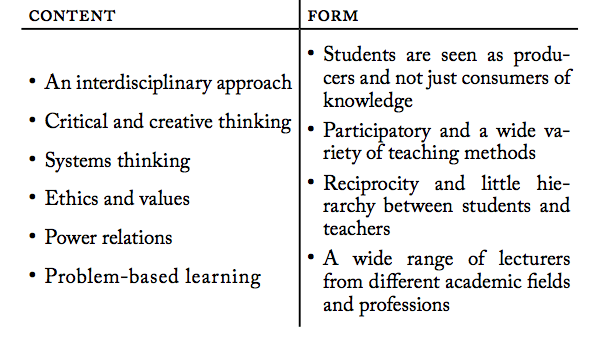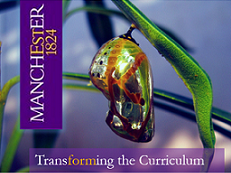If I Had A Time Machine, I Would Like To Experience Interdisciplinary Sustainability Learning in Secondary International School
When I was a teenager, I learned a variety of different disciplines, focus on the one in which I am now specifically engaged as part of my further study. This personal experience of mine is not uncommon as is illustrative of how specialization can impact upon personal academic and career development on a global scale. Meanwhile, this, situation has changed and evolved much.
During my time working for an international school in China, I was enlightened by a primary school teacher who taught all the subjects to her students, also setting up a sustainability project to integrate her students’ knowledge of what they had learned every month. It was with this source of inspiration which motivating me to action that me I elected to conduct some research into Chinese literatures Xu, (2015) and Wang, (2016) that place emphasis on the importance of interdisciplinary, sustainable learning at key stages one and two and university period, secondary interdisciplinary sustainable education exists gaps need to fill in China.
Inspired by Coops (2015) and Susan Brown, I decided to develop sustainability based education in China at the macro-level, setting up a sustainable interdisciplinary extracurricular project myself. This project will be presented on the 22nd of April; I eagerly look forward to the participation of all of my readers. Upon attending this presentation, interdisciplinary education will be clearly defined and, as attendees, you will be guided through a thorough explanation of my projects and why they are so important, particularly for teenagers.
Specific Activities
This project will be set up during the after-school activities period during which a meeting place where student have enough space to gather together will be provided. Every three months, secondary students are required to participate in a sustainability related project which is decided by the students and completed in groups. An example of one such project might be for the team to ‘establish a model of an eco-friendly city’.
The Influence of Interdisciplinary Sustainability Learning
My initial idea was first adopted from a concept developed in a useful book on this topic, ’How an entry-level, interdisciplinary sustainability course revealed the benefits and challenges of a university-wide initiative for sustainability education’ (Coops, 2015), one that I highly recommend it to you.
Although this book is based on a university context, I was able to adapt and use numerous perspectives from it. Coops (2015, p75) defines an interdisciplinary course as one that involves the integration of theoretical fragments and methodical tools from different disciplines to solving a specific scientific problem. More specifically and applying this definition to our context in question, an interdisciplinary sustainability project should solve issues specifically related to environment and development area.
I will demonstrate the influence of interdisciplinary sustainability projects in terms of two particular aspects: consciousness and competence.
Competency Change
In our interdisciplinary sustainability process, teachers, implement a powerful pedagogy to develop various competencies amongst students. Such an approach will allow for both teacher and student to develop their abilities in a generalisable range of core areas.
Coops (2015, p50) emphasises that teachers should position students in the centre of the classroom, not only spatially but also in terms of focus, engaging them in the tasks of course organization and topic selection. During this sustainability project, the teacher acts primarily as a facilitator. In order to perform such a role effectively, teachers should conduct a sufficient amount of preparation concerning background knowledge so that they are able to effectively implement this powerful method to stimulate their students’ sense of participation and critical thinking.
On this point, I was particularly enlightened by Coops (2015, p63) who mentions that they elected to invite lecturers from university to provide students current research connections. Teachers are expected to place themselves in place where they are able to think for the students which means this process contribute to their future development including career choices.
For more information on this process, you can watch this video on teachers’ perspectives on integrated studies:
Meanwhile, students should be encouraged to plan and run this problem-solving based project is a effective way in which their competencies are nurtured; such a methodology will incorporate the interdisciplinary approach, critical and creative thinking, systems thinking, ethics and values, and power relations, (Coops, 2015, p52).
Since students should learn how to search for information from a variety of different sources and subject matters and then integrate it together to form a coherent picture, this requires students to have critical and creative thinking, systems thinking, problem-based learning. Students work in team to solve issues expand their relations with schoolmates and teachers. This part will be l demonstrated during my presentation in detail.
More advantages are available in this video which presents a student perspective on the interdisciplinary graduate certificate:

Source from Coops, 2015, p52
Consciousness Change
Education for sustainable development, including social, economic, environmental and scientific development, is a generational issue (Coops, 2015, p44). Interdisciplinary education integrates new knowledge and applies theory to practice. the practice stage not only consolidate student understanding of knowledge, but is also accompanied by their changes in consciousness and in their behaviour. Thus, only a small transformation in behaviour will shift the ethos of this generation over the long term.
- Active consciousness changes consciousness and behaviour more effectively. Coops (2015, p30) state that the departure point to design this project is that advocate student making a contribution to social change and to actively establish a sustainable and equitable world. An interdisciplinary sustainability project is a student-centred project in which all the reflected thinking should be raised by the students themselves. Students are knowledge producers rather than consumers. This active learning process is more effective at changing their inner thought processes.
- This innovate sustainable programme is designed to implement a creative and competitive educational environment for students to inspire their potential audience and to raise their awareness. Today’s traditional education is inadequate for this purpose because it still lacks the ability to play the role of shaping the future living conditions of teenagers and solving the present sustainability problems (Coops, 2015, p45). This project focuses on the problem-solving of sustainable developmental issues because previous models of education are not suitable for today’s economic growth, furthermore, in providing solutions to the threats that are currently damaging the planet. This creative educational atmosphere can enhance pupils’ global responsibility, critical thinking and citizenship by promoting their thinking towards a way is more sustainably orientated towards our environment and future generations.
For me, I want to have a time machine to experience interdisciplinary sustainability learning in secondary school which is impossible. However, I hope each student will enjoy this extra-curriculum could become an optional course world wide.
Recommended Reading for More Information
Interdisciplinary education:
The value of interdisciplinary education:
PowerPoint: http://securityandsustainabilityforum.org/innovative-approaches-to-sustainability-education-at-u-s-universities-january-14th-webinar-how-to-prepare-future-sustainability-leaders-6017
https://app.box.com/s/mmu650qlqkhhhpntqzwtmwrld0kx8754
Master of studies in sustainability leadership: https://www.cisl.cam.ac.uk/graduate-study/master-of-studies-in-sustainability-leadership
Creating sustainable cities:
The sustainable city:
The most eco-friendly cities in the world:
Eco friendly construction:
https://www.youtube.com/watch?v=eO1GoPbXubg
References
Xu, W. (2015). Design and Implementation of Interdisciplinary Subject Teaching in Primary Schools. Course Teaching Research, (1), 85-89. Available at: goo.gl/bPDtsF
Wang Y. (2016). Interdisciplinary Education: The Only Way for China’s Universities to Establish First-Class Undergraduate Teaching: Taking Environmental Undergraduate Teaching as an Example. China Higher Education Research, (6), 17-24. Available at: goo.gl/oVRF1j
Coops, N. C., Marcus, J., Construt, I., Frank, E., Kellett, R., Mazzi, E., … & Schultz, A. (2015). How an entry-level, interdisciplinary sustainability course revealed the benefits and challenges of a university-wide initiative for sustainability education. International Journal of Sustainability in Higher Education, 16(5), 729-747.

